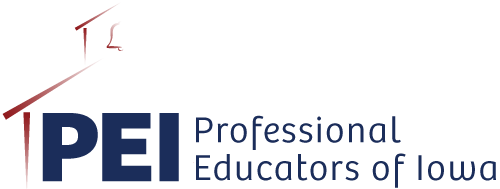Yes, evaluation should happen annually for teachers. As a matter of fact, evaluation should happen daily for teachers – and it does. The problem is we don’t ask the real evaluators how their teachers are doing. Daily our students are in the classrooms and daily the teachers are “performing.” Oh I know, some of us teachers don’t want to be considered performers, but the fact is we have a captive audience and a message. We are presenters, performers, and teachers. We can present with compassion, conviction, and commitment toward excellence or we can be bland, boring, and ineffective. Now I know that not everything we need to teach our students may inherently be the most fun or interesting, but I also know that those essentials can be presented in such a way that stimulates great interest.
It is a very interesting thing in itself how students learn when they understand the relevance of a topic. As a former driver education instructor I was always amazed at how even the lowest achievers will find a way to learn the essentials so they can gain their license to drive. That example should be taken by all instructors and the application utilized to increase the interest level of their students. For instance, physics, chemistry, and electronics may seem boring to some students at first thought. You might hear something like, “I just wanta work on cars.” Well, let me tell you, it is impossible for a good auto repairman to ignore physics, chemistry, and electronics. Those things are integrated in our automobiles and our lives. The really good instructors get that message across.
What does all of this have to do with teacher evaluation? EVERYTHING! We can tell if the teachers are wise enough to find the relevance of a topic to interest their students by the motivational factor of the class members. I know there are exceptions. I used to agonize when I could not “get to” a student. There are some students with insurmountable mental blocks and that is an unfortunate fact. Regardless of how we try, they sometimes are victims of their own contrivance by their steel walls of resistance. I believe quite strongly however, that the true professionals will do everything in their power to motivate all their students. The students know it and will respond.
All of these factors enter into successful classroom instruction. Once we have them interested we then must deliver the information. Those who do so are the excellent teachers. Everyone reading this knows who their great teachers were as they were going through the system. It didn’t take some tricky credentialing by a certified evaluator to know it either. Now in Iowa, the educrats and bureaucrats have joined forces to make one of the most inefficient evaluation systems in the nation. With Iowa’s system a mutually agreeable time is set for an evaluation and the instructor writes what they are going to do. The teacher and evaluator meet to talk about what is going to happen. The evaluator comes to the class with a checklist of 8 Iowa Standards and a list of what is supposed to happen. The teacher tries to make it all happen as planned and then the evaluator must write comments on all the standards and the goals. The evaluator and teacher then meet to talk about how the lesson went and see if the evaluator thinks the teacher can teach. This is to take place every three years. In other words, every three years the teacher must put on the SHOW OF SHOWS. What about all of the other days? They should be a SHOW OF SHOWS, too. In an attempt to soften this silly procedure, I must add that there is the “walk-through” which is frequently used in the overall evaluations, but the weight of the process falls on the scheduled show.
It is time to get real. Consider the real experts on how well a teacher teaches – the students. It is time for follow-up to take place. Find out who the good teachers are by follow-up surveys to students and parents. Contract the administrators who will identify the good teachers and reward them. The entire follow-up system should apply for the administrators as well. School boards have gotten lazy about evaluating their superintendents. They should be doing teacher and community follow-up surveys. Too many times they are just listening to the reports their superintendents give them and are not surveying their principals, teachers, support staff, students, and parents. Just because you have a degree, credentials, or a position does not mean that you are good at it. Until our schools start competing for students they will not have meaningful change. Until our colleges and universities take responsibility for the people they graduate being qualified to work in their professions, we will have unprepared graduates. Until we approach evaluation realistically that every day should or could be evaluated, we will have a joke for an evaluation system. Not a funny joke, but it is jokingly pathetic to think that we are getting a true picture with the current system. Right now the structure lends itself to something like “dog and pony” carnival acts. Our teachers will prepare for that special day, for their “show of shows” even to the detriment of the rest of the day’s instructions because of the weight given to the bureaucratic pretense that they have actually done an accurate assessment. Really? They have assessed, but are the students really making gains? Isn’t that the education objective? So let me ask you a question: Who were YOUR best teachers?
Jim Hawkins, Director

